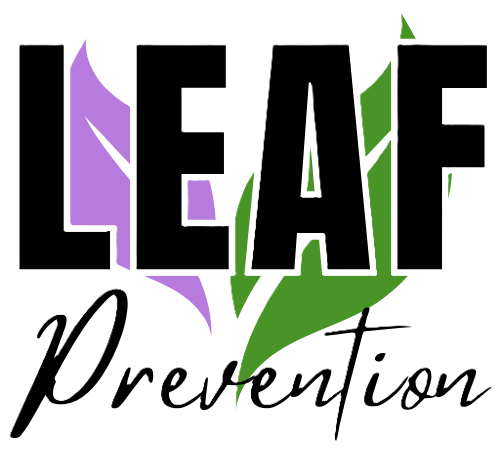

Blog Posts
Opinions about cannabis are mixed, with some claiming it’s a natural or medicinal substance and others calling it problematic.
One of the main concerns about cannabis is its effects on developing brains—specifically adolescents, who are likely to experiment. Is cannabis safe for teens and young adults?
The substance in cannabis that makes a person high is called tetrahydrocannabinol (THC). THC can cause a number of immediate side effects, including:
Additionally, because of cannabis’s history as a Schedule I drug in the United States, research about cannabis is limited; more studies are needed to fully understand the drug’s effect. Although it has been used medically for certain specific conditions, experts still need more research to understand cannabis.
For both legal and illegal purchases of cannabis, potency is a concern. While a higher potency may result in a more intense high, it also comes with additional risks to the consumer’s physical and mental health. Learn more about high-potency cannabis here.
However, don’t think that low potency means no risk. The National Institute on Drug Abuse reports that THC, the psychoactive part of cannabis, directly alters the hippocampus, which is the brain’s center for memories and information processing (NIDA 2023). This, along with the side effects listed above, occur even at small doses.
Potentially Permanent Effects: For young people who use cannabis before the age of eighteen, the substance can have lasting effects on memory and attention. Again, more research is needed to determine how long these effects last—or if they are permanent (CDC 2024). Studies do indicate that there is some lasting cognitive impairment, but the degree depends on age, frequency, and duration of use (NIDA 2023).
Altered Reward Systems: According to the National Institute on Drug Abuse, one of the effects of cannabis might be an altered reward system, which could put an individual more at risk for seeking additional drugs (this supports the idea that cannabis could be a “gateway drug”) (NIDA 2023).
Emotional Struggles: Cannabis use—and especially high-potency cannabis use—has been associated with higher rates of anxiety and depression (Hines et al. 2020). These conditions can be devastating for a young person who is still developing their self-image and confidence.
Substance Use Disorder: Adolescents who use cannabis frequently and at high potencies are at risk for substance use disorder, a condition in which a person depends on a substance for daily functioning.
Impaired Driving Risks: Cannabis slows reaction time and impairs attention, similar to alcohol. Teens who use cannabis before driving are at a higher risk for accidents and injuries. Read more on cannabis and driving here.
Physical Effects: If teens are smoking cannabis, their risks increase for lung and heart problems. Although edible products are becoming popular, users must be over twenty-one to purchase these—and even edibles come with risks for heart issues and accidentally overconsuming (Blum 2024).
Talk to children early and often about substance use. Discuss your child’s thoughts about cannabis. Make a point to bring it up often—and don’t forget to talk about the risks of impaired driving.
Clearly communicate the risks, but don’t make the conversation completely negative; teens can be empowered by discussions about healthy lifestyle choices.
If you suspect your child is using a substance, always contact their pediatrician first.
If you have questions about cannabis use or need help supporting someone with a substance use disorder, please contact LEAF at (607) 432-0090. Our team members are prepared to offer a listening ear and connect you with local resources that can help.
Blum, Dani. “Are Edibles Safer Than Smoking?” The New York Times. January 29, 2024. https://www.nytimes.com/2024/01/29/well/cannabis-weed-edibles-smoking.html?smid=url-share.
Centers for Disease Control (CDC). “Cannabis and Brain Health.” February 15, 2024. https://www.cdc.gov/cannabis/health-effects/brain-health.html?CDC_AAref_Val=https://www.cdc.gov/marijuana/health-effects/brain-health.html.
Hines, Lindsey A., Tom P. Freeman, Suzanne H. Gage, Stanley Zammit, Matthew Hickman, Mary Cannon, Marcus Munafo, John MacLeod, and Jon Heron. “Association of High-Potency cannabis use with mental health and substance use in adolescence.” JAMA Psychiatry 77 (10): 1044. May 27, 2020. https://doi.org/10.1001/jamapsychiatry.2020.1035.
National Institute on Drug Abuse (NIDA). “What Are Marijuana's Long-Term Effects on the Brain?” April 17, 2023. https://nida.nih.gov/publications/research-reports/marijuana/what-are-marijuanas-long-term-effects-brain.
Sharma, Pravesh. “How Youth Marijuana, Alcohol Use Impacts Life.” Speaking of Health (blog), Mayo Clinic Health System. January 17, 2023. https://www.mayoclinichealthsystem.org/hometown-health/speaking-of-health/how-teen-marijuana-use-impacts-brain-development.